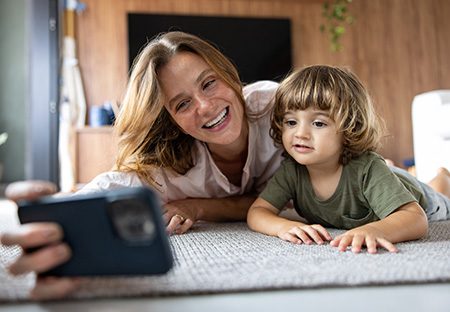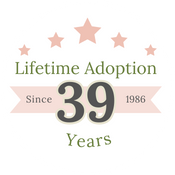What is Open Adoption?
 Open adoption means that the birth parents and adoptive family maintain an open relationship for the good of everyone involved. However, the bottom line is that open adoption means many things to many people.
Open adoption means that the birth parents and adoptive family maintain an open relationship for the good of everyone involved. However, the bottom line is that open adoption means many things to many people.
Therefore, the degree of contact between the families is something to be agreed upon before the adoption is final. Lifetime Adoption has over 35 years of experience supporting open adoptions. Moreover, we’ve chosen to specialize in open adoptions because it is widely believed that such openness, in most adoptions, is in the best interest of all members of the adoption triad (the birth parents, adoptive families, and children). Additionally, these adoptions are often safer and have fewer reclaims.
Why Birth Parents Choose Open Adoption
Normally, birth parents who choose open adoption are looking for reassurance that their child is growing up safe and happy. Usually, birth parents seek contact through periodic letters, emails, photos, or possibly phone calls, from the adoptive family.
However, there are some birth families who do not want any further contact after the adoption until the child is 18 years old. And in an open adoption, the choice is as much the birth parents’ as it is yours. So your openness will also be taken into consideration during the matching process. Therefore, we ask our parties to honor their commitment, once made.
What Open Adoption Means For the Adoptive Parents
If you are the adoptive parents, open adoption can mean everything from just speaking over the phone with a birth mother to ongoing letters, photos, phone calls, or visits after the adoption. Additionally, it’s very helpful to have the opportunity to know your child’s medical history. For example, it is vital to know of any medical problems that may arise as the child grows into adulthood. In addition, should a rare situation arise that your child needs something from a biological relative, you would be able to find one easily.
Common Questions About Open Adoption
1. What exactly is open adoption?
Having an open adoption means that there’s some level of direct communication between the adoptive family and the birth family. They communicate directly with each other through emails, letters, photos, or visits, instead of relying on an intermediary such as an agency, attorney, or social worker. The type and amount of contact are mutually agreed upon between the adoptive couple and the birth parents.
2. Can the birth parents come back and get their child?
No, once the adoption has been finalized in court, the adoptive parents are the child’s legal parents. The adoption becomes permanent once the birth parents sign the legal paperwork consenting to the adoption and their revocation period passes.
3. Does your child know who their birth parents are? What does he call them?
Nowadays, adoptive parents are encouraged to talk about adoption from the start, even when their child is an infant. By doing so, the child doesn’t grow up confused about his origins and his birth family. Check out our post from a couple of days ago, “How to Talk to Your Children About Their Adoption.”
4. Is it hard for your child’s birth mother to see him?
Most birth mothers have shared with Lifetime that although open adoption visits are emotional, they actually make her feel very positive about the decision she made. Open adoption visits, emails, photos, and other communication allow the birth mother to see that her child is growing up happy and loved. Instead of feeling regret, she feels validated.
5. How long do you have to stay in touch with your child’s birth parents?
This depends on the open adoption agreement made between the adoptive parents and the birth family. Lifetime has seen that some birth mothers need lots of contact early on, but not as much years down the road. The reverse can also be true; it depends on the birth mother and her needs.
6. Won’t this relationship be confusing for your child?
No, actually experts have found that open adoption lessens the amount of confusion and mystery for adoptees. With open adoption, the child will know his birth family, genetic roots, the circumstances of his conception and birth. Most importantly, the child will be aware that they’re loved both by their birth parents and by their adoptive parents. As you can see, the truth isn’t confusing; the truth is liberating.
7. Do ever you wish you had a closed adoption?
The adoption isn’t just about the adoptive parents; it’s about everybody involved. And the most important person involved in the adoption is the child; everything is done in the best interest of the child. The birth parents are choosing to place their baby with an adoptive couple with their child’s best interests in mind. For a variety of reasons, they’re not able to be parents right now but choose adoption out of love for their child. In the end, the adopted child benefits most of all from an open adoption. They will never question, never doubt that they were and are loved by his birth family. And, if they ever do, all they have to do is ask them.
To learn more information about the open adoption definition, please call us at at 1-727-490-0933 or use the TEXT US button below to speak to one of our caring coordinators.
Get More Info Now
If you live outside of the United States, please click here.
Mardie Caldwell
Funding Your Adoption
Called To Adoption
Open Adoption Webinars







